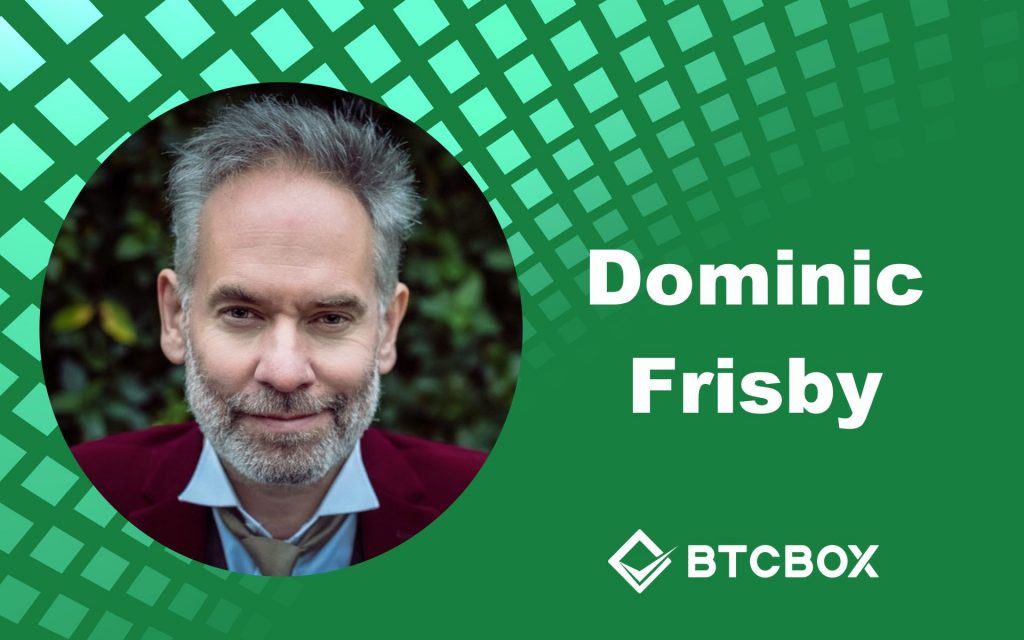
Dominic Frisby is a financial writer and comedian from London, England. He is bringing awareness to important matters like investing, tax, gold, commodities, currencies, and cryptocurrencies. He is the author of the books Bitcoin: the Future of Money? and Life After The State. He also co-wrote the documentary Four Horsemen, and presents the chat show, Stuff That Interests Me. In his new book, Daylight Robbery – the past, present and future of tax, Frisby talks about how death and taxes are inevitable, and how we are in a post-war slavery time.
Interview Date : 17th March 2021
How did you start your career?
I started my career as a comedian and was able to make some money. I started investing that money and that is how I became interested in gold back in 2005~2006. This also brought my attention to our money systems, so I started a podcast to talk about this topic. One of my guests on the podcast invited me to start writing a column for them, so I started writing about money. I wrote 3 books, Life After the State, Bitcoin: The Future of Money, and Daylight Robbery: How Tax Shaped Our Past and Will Change Our Future because I was convinced that many of society’s problems stem from a money system that is broken and that we need to fix our system of money.
How are our societies and tax systems related?
I have this idea that you design society the way you tax it. You determine the destiny of a society by the way that you tax it; how prosperous or poor the people will be, how free or subordinated people will be, etc. It’s not just the amount but also the way that you tax the people.
For example, today we rely very heavily on taxing labor even though we didn’t always tax labor so much. I think there’s a relationship between taxation and freedom. A slave owns none of his own labor like someone in a totalitarian state, but someone in an anarchic state with no government has 100% ownership of his own body and labor. At the moment where 40~50%of our money goes on taxes, so we own about 50~60% of ourselves. This needs to be a lower number.
Can Bitcoin change how people are taxed?
A lot of people have made a lot of money from Bitcoin, and they are talking about citadels and new countries, new communities arising around Bitcoin mining operations in remote jurisdictions. As these new lands start to form, we need to think about how we tax people because I think we’re going through one of these changes in history when new countries are going to come up. So, we need to be talking about taxation and how we tax people because that will determine how successful these new societies will become.
Shouldn’t the government provide us with education, health, and welfare?
Different people have different opinions about taxes and taxation systems differ from country to country. My view is that the government is not the best way to provide welfare, education, or health care. There are other means to provide it which are much cheaper and much better. If the government is providing education, that would mean the government decides what you learn and don’t, and I don’t think that’s right.
The free market came up with the internet, and the internet is the most fantastic tool for education ever invented. Anyone can learn about whatever they’re interested in, and broadly speaking, it’s not government-regulated.
I think the same applies to health care, but some people think the government should provide these things. For example, as we talk today, there is a war in Syria, that war and every other single war in history has been paid for by taxes. If you remove the tax, you remove funds from the government. One of the consequences of that is that you remove the government’s ability to make war because it can’t afford its soldiers.
How are nations created due to the tax system?
Nations, as we know them today, exist because of taxation. Until 200 years ago the tax models were designed around an economic infrastructure built after the industrial revolution. 200 years ago, many of these countries like Germany and Italy were created. 200 years from, I don’t think those nations will exist because economies will change and so will taxation systems.
Could you recommend purchasing a property in London today?
I’m born and bred in London and I’ve spent my whole life trying to escape. I haven’t managed to escape it yet. Property in London is very expensive at the moment. An ordinary family 3-bed house in a reasonable part of London is around $2 million, and that would be a home that was built 150 years ago for working-class people. It’s a very expensive city and has become like this due to the dysfunctional money system that we have.
There’s a lot of opportunity in London, and that’s why people want to live here but I am not sure how much Covid-19 is going to change London. Around 700,000 people have already left London because of it and it is not nearly as crowded as it was a year ago. We don’t know how much London is going to bounce back; they closed down all the theatres, restaurants, and live entertainment. So, London is very quiet at the moment.
Why has London and other big cities around the world become this expensive?
Because they print money and inflation, which is a form of taxation. It’s a way of extracting wealth from people and transferring it to the state. Milton Friedman called inflation “taxation without legislation”.
There’s barely any activity in the world that doesn’t involve taxation of some kind. Your tax is deducted so the government can provide the services it provides. Now, I argued that the services it provides can be much better for a much lower price but I also accept that taxation of some kind is inevitable.
Even in something like Bitcoin, which is a free market but it still taxes us; we pay taxes to the minors in the form of fees. So, we still pay taxes to the mining companies.
What do we need to consider about government taxation?
When it comes to government taxation, there are two things we need to consider. Firstly, there’s too much tax on labor but we don’t tax land very much at all, for example. Hong Kong was one of the most successful economies of the second half of the twentieth century, and its taxation as a percentage of GDP never exceeded 14%. Moreover, they didn’t tax labor – only the very rich paid income tax but ordinary workers paid no income tax at all. Yet, Hong Kong went from being a shantytown in 1945 to one of the most successful economies in the world with a per capita GDP higher than anywhere else. It’s extraordinarily successful and its people live long healthy lives. It also has a fantastic education and transportation system. This proves that you can have all the services for ordinary people and still have low levels of taxes.
On the contrary, in western Europe like France, taxation is nearly 60% of GDP – it’s too high. No wonder there is no growth in France given how terribly their citizens are taxed. I think taxation made of some kind is inevitable but it should be 10%~15%, and land should be taxed rather than labor.
How does it make people feel when the system works in favor of the super-rich?
It makes people very angry. If you look at the super-rich, most of the time, they haven’t become super-rich because of their labor. Except for maybe football and other sports players or rock stars, etc., but most of the time the super-rich become super-rich because of the appreciation in the value of their company shares, a stock, a bond, a land or property like houses, etc., and real estate. These assets largely go untaxed unless you sell. So, people don’t sell because they have to pay tax. It is not taxed in the same way the income is taxed, so the middle-class workers find themselves shouldering the burden of taxation more than the super-rich does as a percentage of what they own. This system is inequitable and not fair, and this is one of the things I talk about.
Interviewer , Editor : Lina Kamada
【Disclaimer】
The Article published on this our Homepage are only for the purpose of providing information. This is not intended as a solicitation for cryptocurrency trading. Also, this article is the author’s personal opinions, and this does not represent opinion for the Company BTCBOX co.,Ltd.


